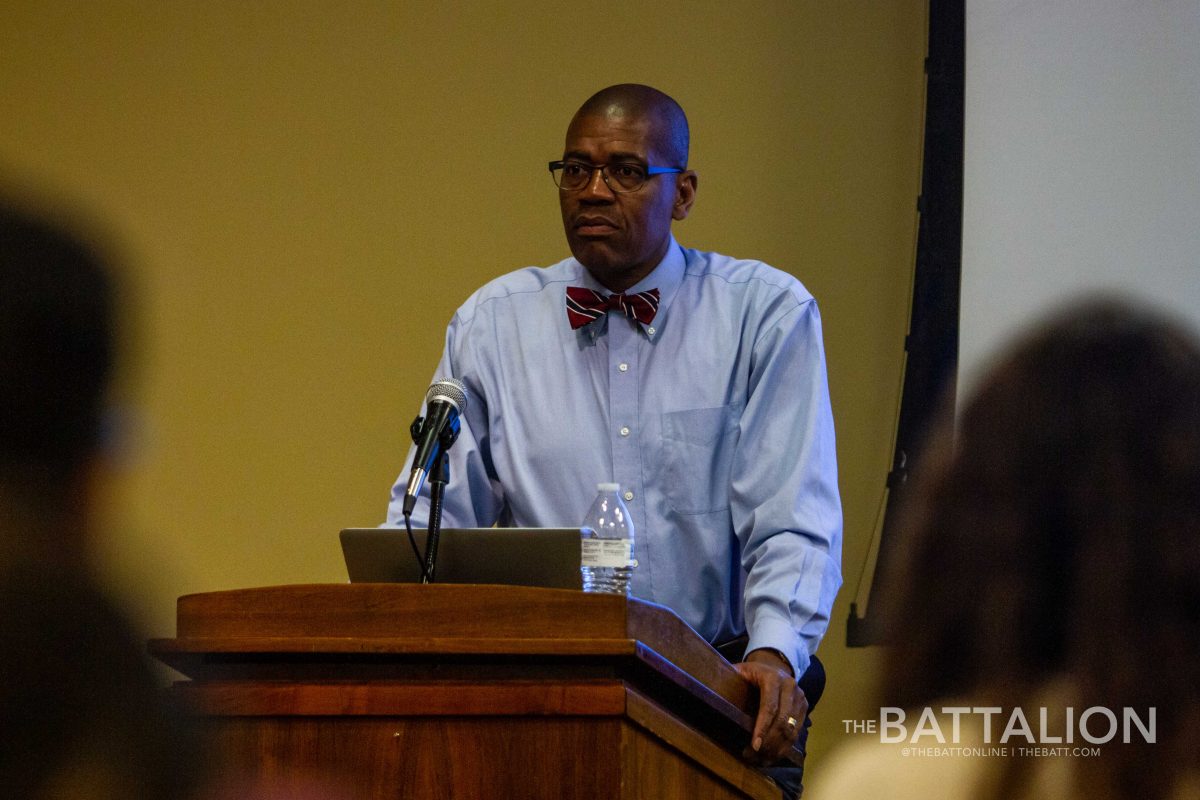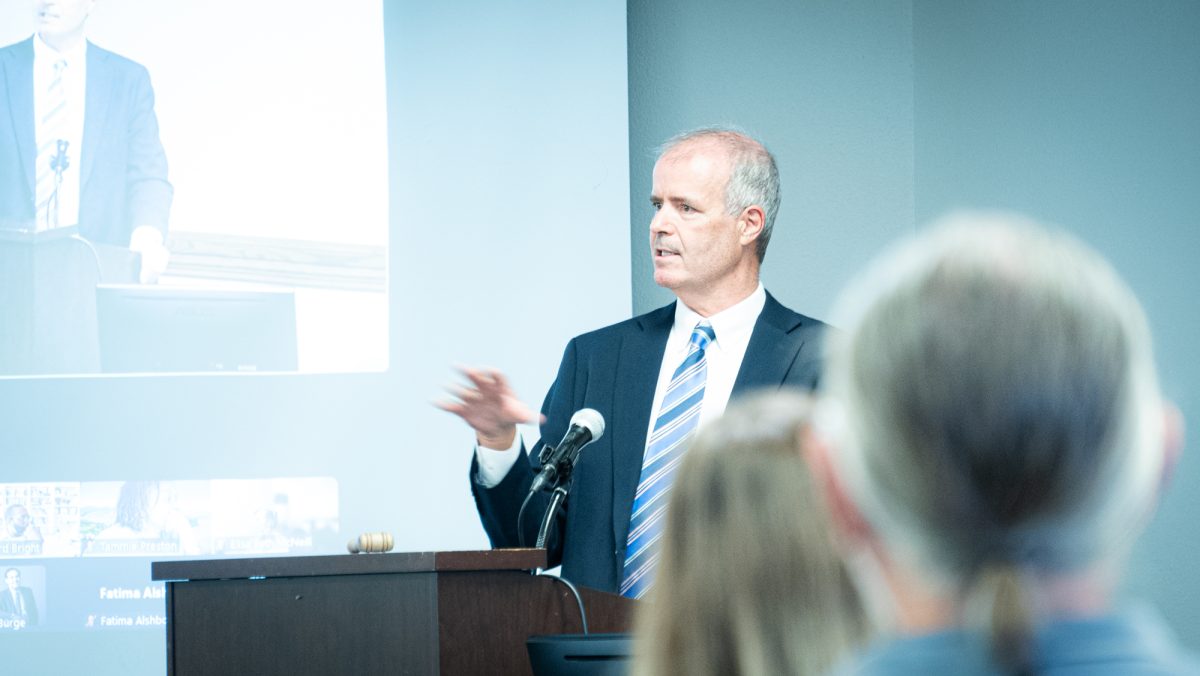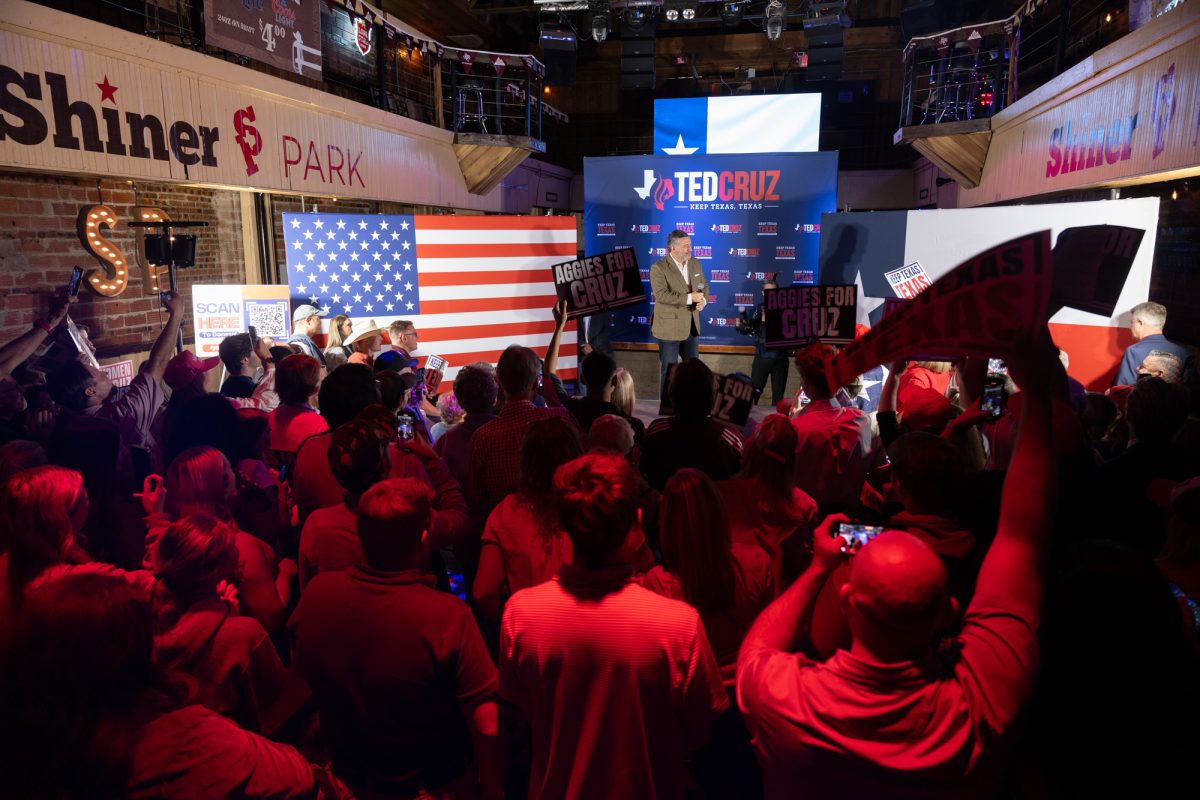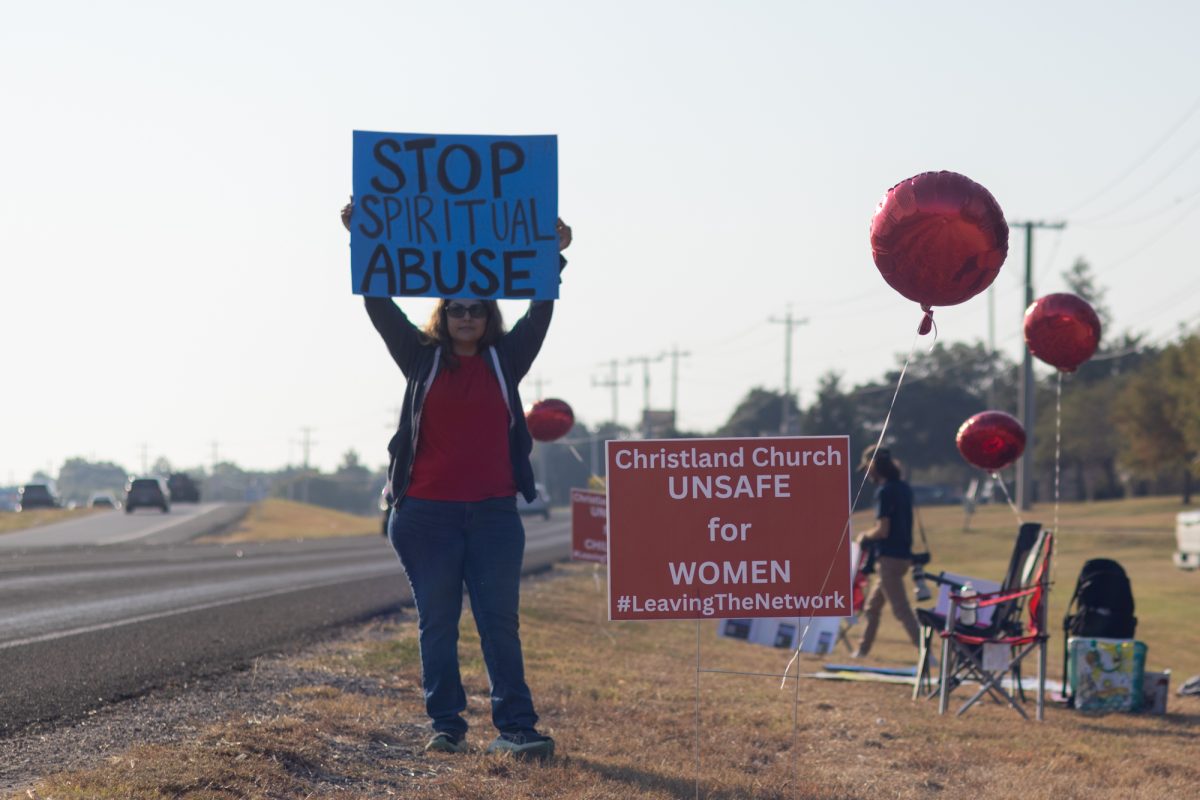MSC Bethancourt hosted Dr. Reuben May on Oct. 23 to speak at a lecture entitled “Exclusionary Practices in Urban Nightlife.” May is a professor of sociology at Texas A&M, and is known lovingly by Aggie students as “the rapping professor.” May’s lecture was built of his book “Urban Nightlife,” in which May details his research into the discriminatory practices in the bar and nightclub circuit.
In this lecture, he highlighted what he called the “WODE” or “Web of Discrimination or Exclusion,” in which nightclub owners use to exclude undesired customers, typically African-American.
This lecture in particular, Bailey said, encourages students and administrators alike to sympathize with people in situations that most would not normally think about.
“When we … [have] fun with our friends, we don’t think about how a guy just got turned down or was excluded,” Bailey said. “This will help us … [think] about the larger picture.”
In 2002, May began a sociological study on urban nightlife in which he interviewed nightclub and bar club employees from Georgia. In his book, he uses this study to make arguments about “integrated segregation” within urban nightlife.
“When I was doing the study I noticed that many African-American men complained that the nightclub owners were using dress codes to discriminate against them,” May said. “They said they were picking clothing that typically African-Americans would wear. Especially those who are interested in hip-hop or were from urban environments.”
The results of the study encouraged him to begin an “audit-pair study” in which they paired together African-American, White and Latino men to go into 53 nightclubs across Dallas, Austin and Houston nightclubs in various types of clothing. This data proved that African-Americans were denied access twice as much as both White and Latino men.
“We found that African-Americans were denied access in little more than one in 10 visits,” May said. “That’s just one exclusionary practice.”
Nightclubs also use “Fake Guests Lists” to give the impression that their club is more desirable or exclusive. May told the audience a story of a bouncer that utilized the technique to exclude a group of his auditors.
The nightclub’s bouncer who told the line of people that if they were not on the VIP guest list, they could not get in. When he pulled four white women out of line to enter the club, the group became suspicious. Then, more aggressive, the bouncer used profanity and yelled at well-dressed South-asian men. Promptly after, the bouncer let May’s group of auditors in.
“I knew at least eight people personally who were not on the guest list but were told they could get in,” May said. “This is the only case in which we saw South Asian men involved in any dsicramination whatsoever.”
Another exclusionary practice was what May called the “White Rabbit.” This is the nickname given to white men who are hired to start fights with black men in order to get them kicked out of a nightclub or bar.
“If you want to talk about any of the exclusionary practices that really hit me, it is this one, because this … [is] a way to keep blacks out in a very real, systematic, high-level way.” May said. “Sometimes the [white rabbits] get thrown out with the black guys, and are brought back into the nightclub and will get free drinks.”
May then offered potential solutions to the aspects within the “WODE.” These include public exposure via social media, social-scientific research such as the Audit-Pairs, and using the legal system.
“Recognize the big picture. I have focused on nightclubs, and discrimnination in nightclubs but sociologists have demonstrated [discrimination] education, employment and even in the criminal justice system,” said May. “I think racism and dsicrimination eat at the fibers of the ideals of our country, especially in respect to equality and fairness. We should … [take] a stand and do something.”
International studies and Spanish sophomore Gloria McIntush said that it struck her to see how far people will go to exclude people based on race.
“He said that the black population at Texas A&M was three percent,” McIntush said. “It is important to hear these testimonies inside of things that we take for granted, like going out to a club.”
Psychology sophomore and lecture executive of MSC Bethancourt Terence Bailey II said he corresponded with May because he had a similar goal of educating individuals about interdisciplinary issues like urban nightlife exclusions.
“The overall goal of MSC Bethancourt is to provide knowledge that you wouldn’t necessarily see in the classroom,” Bailey said. “It definitely helps with your empathy and your sympathy. It allows you to put yourself in the place of others.”
May explores racist practices in urban nightlife
October 23, 2019
Photo by Photo by Meredith Seaver
On Oct. 23 professor Reuben May spoke on discriminatory practices in nightclubs and bars he discovered during his research for his book “Urban Nightlife.”
0
Donate to The Battalion
Your donation will support the student journalists of Texas A&M University - College Station. Your contribution will allow us to purchase equipment and cover our annual website hosting costs.









